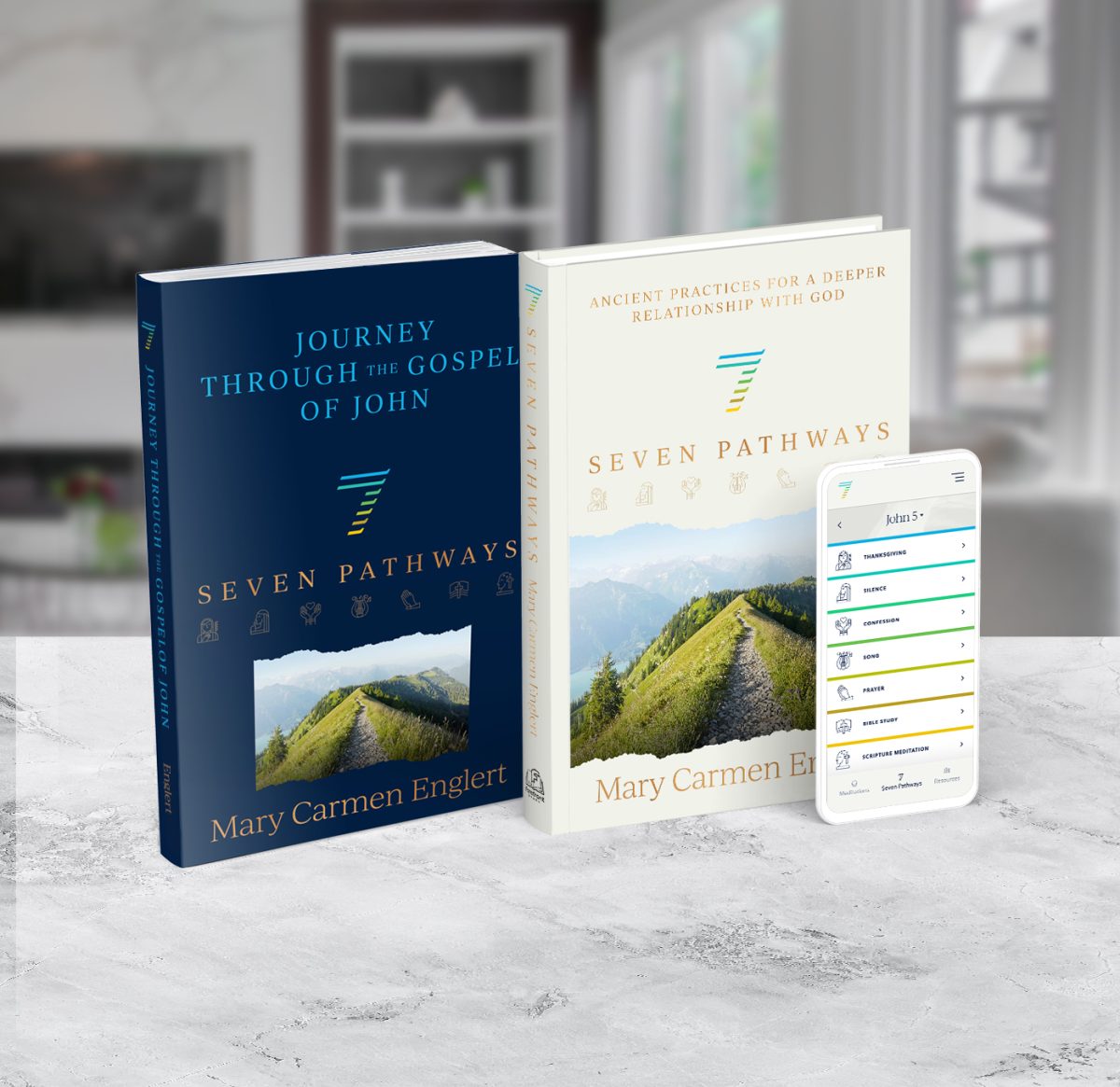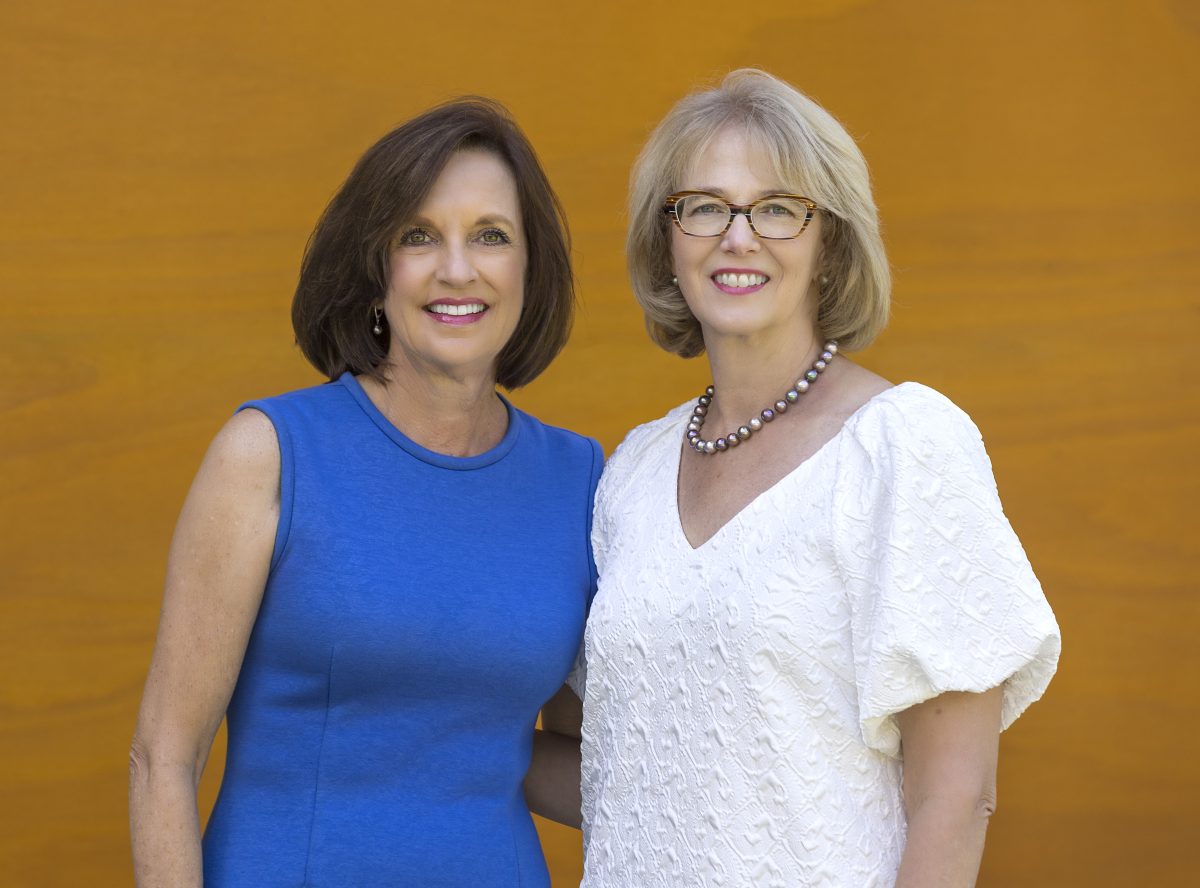
Organizational Culture Should Focus On Its Biggest Resource: Their People
Paula Brown Stafford and Lisa T. Grimes, co-founders and Managing Directors of Habergeon, discuss the power of continued learning as a professional and why companies need to build their organizational culture with one thing in mind: their people.
You can listen to this conversation with Paula and Lisa on our podcast, Work, Love, Pray! Listen below or click here to find your preferred listening platform.

This blog is sponsored by Seven Pathways
Seven Pathways is a new approach to strengthening your connection with God through ancient, proven Biblical practices, and many modeled by Jesus. Through creating a daily rhythm of the seven pathways: thanksgiving, silence, confession, song, prayer, Bible study, and Scripture meditation in a chapter-by-chapter study of the Gospel of John you will reset your day by fueling your thoughts with thankfulness, rediscover the luxury of silence, and the gift and power of prayer. Through Scripture you will be refreshed and rediscover the healing grace of God finding peace and purpose, joy and contentment while contending and hope and solace. Go to sevenpathways.com to purchase the book and Bible study and experience the new digital Bible study.
Why is it important to keep learning if you want to be successful and authentic at work?
Paula: Learning is our best opportunity to grow. When I am growing, I am thriving in my role. I’m my best self when I’m learning. Then, when I start getting bored, I quit growing and thriving. I have really encouraged anyone I mentor or speak with about their careers to move within an organization or between organizations every three years. The first year is figuring out the job, the second year is doing the job and loving it, and the third year is figuring out how to get out of that job because once you’ve learned it and you’ve been thriving, it’s not as exciting.
Lisa: Think about broadening your skills, like a plant grows out its root ball. As women, it is important for us to work in our areas of giftedness and skill sets to take them to higher levels of excellence. Too often, we focus on trying to address a weakness, or learn a skill that we perhaps don’t even have the aptitude to have. It can take a lot of time and be frustrating when we’re not working in our sweet spots.
You’ve spoken about how taking calculated risks can help someone grow into their natural strengths at work. Can you share a little more about that?
Lisa: If we have done our homework and prepared for a decision that we need to make, that’s what we call calculated risk. We need to not be afraid to fail, because the real issue isn’t failing—it’s failing to get back up. Too often we let failure define us when it should be refining us. Nelson Mandela said, ‘I never lose, I either win or learn.’ To me, this is the mindset that helps set the stage for a healthy organizational culture where we can all learn from our mistakes.
You have to have a culture that supports that mindset, not a mindset that you’re going to be punished or have some sort of problem because you failed. I also think that when we’re vulnerable, it also helps us to connect on such a different level, which is key in this epidemic of loneliness that we live in. Think about the innovations that have come from failure, like bubble wrap, sticky notes, pacemakers, and so much more. If we want our company cultures to be innovative, that means taking risks, which means failure is an option.
Why is organizational or company culture such a hot topic these days?
Paula: I think it’s always been a topic, but it is hotter right now. Company culture should be all about the most important resource: your people. I’ve always had this mantra: attract, train, retain. Attract is about figuring out how you’re going to attract new employees. When I’m interviewing potential hires, one of the first questions they always ask me is, ‘What is your company culture?’ It’s the best question they can ask, because they want to know who they’re potentially joining and if that company’s culture fits with their personal values.
The next part of my mantra is train, which is the learning that we just talked about. People want to be trained and they want to know that they’re joining a company that is going to allow them to learn and grow and hopefully move into different roles so that they continue to grow and thrive. Those opportunities to grow need to be in a company’s culture.
The third and final part of the mantra is retain. Retaining employees is such a hot topic right now because people are just trying to decide what their role or place looks like in a company post-pandemic. On the flip side, companies are also trying to decide who they are and how they operate each day. Until companies commit to how their workforce is comprised (fully remote, hybrid, or 100% in-office), they’re going to struggle to retain people because they are losing their culture. I think culture is disappearing from so many organizations because they don’t know who they are and they haven’t committed to which work environment they’re going to be. A corporation can be any one of those. You can be all in office, you can be all at home, and you can do a hybrid, but a company has to commit and then build their culture around their decision. If companies are too afraid to commit, their cultures are going to go away, and then it’s hard to attract, train, and retain employees.

Paula Brown Stafford and Lisa T. Grimes are Co-Founders and Managing Directors of Habergeon, a boutique consulting company, and co-authors of the best-selling book, released in 2018, Remember Who You Are: Achieve Success. Create Balance. Experience Fulfillment.
Paula Brown Stafford served most recently as President, CEO and Chairman of Novan, Inc., a micro-cap pharmaceutical company. She has nearly 40 years of biopharmaceutical services and consulting experience, including sales and marketing. She spent over five years as President of the Clinical Development division of Quintiles (now IQVIA), a position with global responsibility for over 20,000 staff, following 25 years in multiple roles with increasing levels of responsibility. She received her bachelor’s and master’s degrees in Public Health, a certificate in International Executive training from INSEAD and completed the Looking Glass Experience at the Center for Creative Leadership. In 2012, she was selected as one of the Top 10 Women in Biopharma by Fiercebiotech. She serves on the Board of Alliance for Multi-specialty Research, Inc., and previously served on the Board of Directors at Health Decisions, a small CRO acquired by Premier Research. She is an Adjunct Professor in Public Health Leadership at UNC Chapel Hill Gillings School of Global Public Health and consults for biopharmaceutical and start up organizations. She and her husband have two adult children.
Lisa T. Grimes served most recently as the President & CEO of PurThread, a medical textile start-up. Lisa’s career has spanned sales, marketing, and executive management in healthcare and service industries. She began her career in sales at Beecham Pharmaceuticals and then moved into sales management roles at Glaxo (now GSK). Her first entrepreneurial experience was with PPDI where she led international business development and contracts. Since then, she has served as the CEO of several start-up companies including InSite Clinical Trials (an SMO for which she led the transformation to a full service CRO prior to selling it to United Healthcare, then served as its President) and AcSentient, an ophthalmology company, which she sold to ISTA. She spent a decade as an Executive Advisor to Campbell Alliance (now Syneos), a leading pharmaceutical management consulting firm. Lisa is a graduate of the School of Pharmacy at UNC-Chapel Hill, where she served as an Adjunct Professor, Associate Dean of the School of Pharmacy and on the School’s Foundation Board of Directors. She also has certificates in Strategic Marketing for Executives from Harvard and in Healthcare Administration from the University of Southern California. She and her husband have two adult children, daughter-in-law and new grandson.